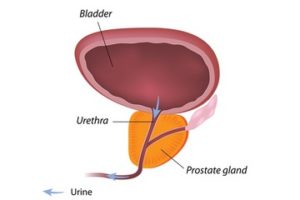
The results of a recent study in the United Kingdom are in line with what a number of researchers (here, here, and here) have been writing about for a while - that studies show that some cancer screening (e.g. for prostate cancer) of people with no symptoms does not save lives.
The UK study randomly assigned men (aged 50 to 69) to get a PSA test one time or to not get a PSA test (the controls). The PSA test measures prostate-specific antigen in the blood, and is typically used to screen for prostate cancer. It is not done routinely in the UK. They found that while more men were diagnosed with prostate cancer in the PSA group, after 10 years there was no statistical difference in death rates between the two groups. As the researchers themselves said, the PSA screening test resulted in "an increase in the detection of low-risk prostate cancer cases" (the ones that wouldn't cause a problem). But not in the aggressive killer cancers. However, the researchers are now continuing the study to see if there are differences in the 2 groups after an even longer period of time. From Medical Xpress:
One-off PSA screening for prostate cancer does not save lives
Inviting men with no symptoms to a one-off PSA test for prostate cancer does not save lives according to results from the largest ever prostate cancer trial conducted over 10 years by Cancer Research UK-funded scientists and published today (Tuesday) in the Journal of the American Medical Association (JAMA). Researchers at the Universities of Bristol and Oxford found that testing asymptomatic men with PSA detects some disease that would be unlikely to cause any harm but also misses some aggressive and lethal prostate cancers.
The CAP Trial, which spanned almost 600 GP practices in the UK and included more than 400,000 men aged 50-69, is the largest trial ever to investigate prostate cancer screening. The trial compared 189,386 men who were invited to have a one-off PSA test with 219,439 men who were not invited for screening. After an average of 10 years follow up, there were 8,054 (4.3%) prostate cancers in the screened group and 7,853 (3.6%) cases in the control group. Crucially, both groups had the same percentage of men dying from prostate cancer (0.29%).
While some prostate cancers are aggressive and lethal, others are clinically insignificant and will never lead to any harm or death if left undetected. Ideally, aggressive prostate cancers need to be identified and treated as early as possible. But finding a cancer that would never have caused men harm during their lifetime can have a serious impact on quality of life, including the worry of a cancer diagnosis, the possibility of infection following a biopsy and impotence and incontinence following treatment. ... Dr Richard Roope, Cancer Research UK's GP expert, said: "The PSA test is a blunt tool missing the subtleties of the disease and causing men harm.
